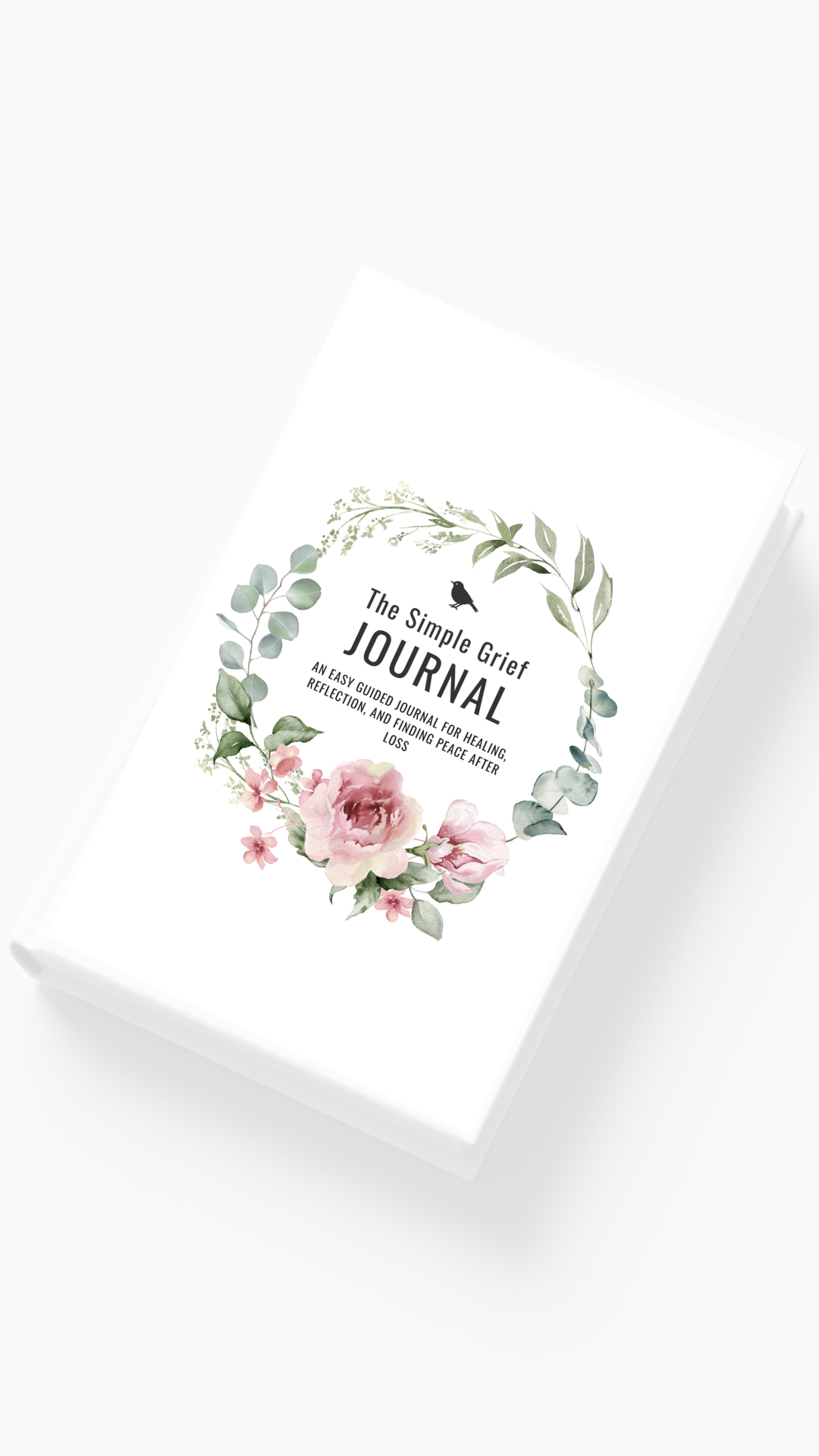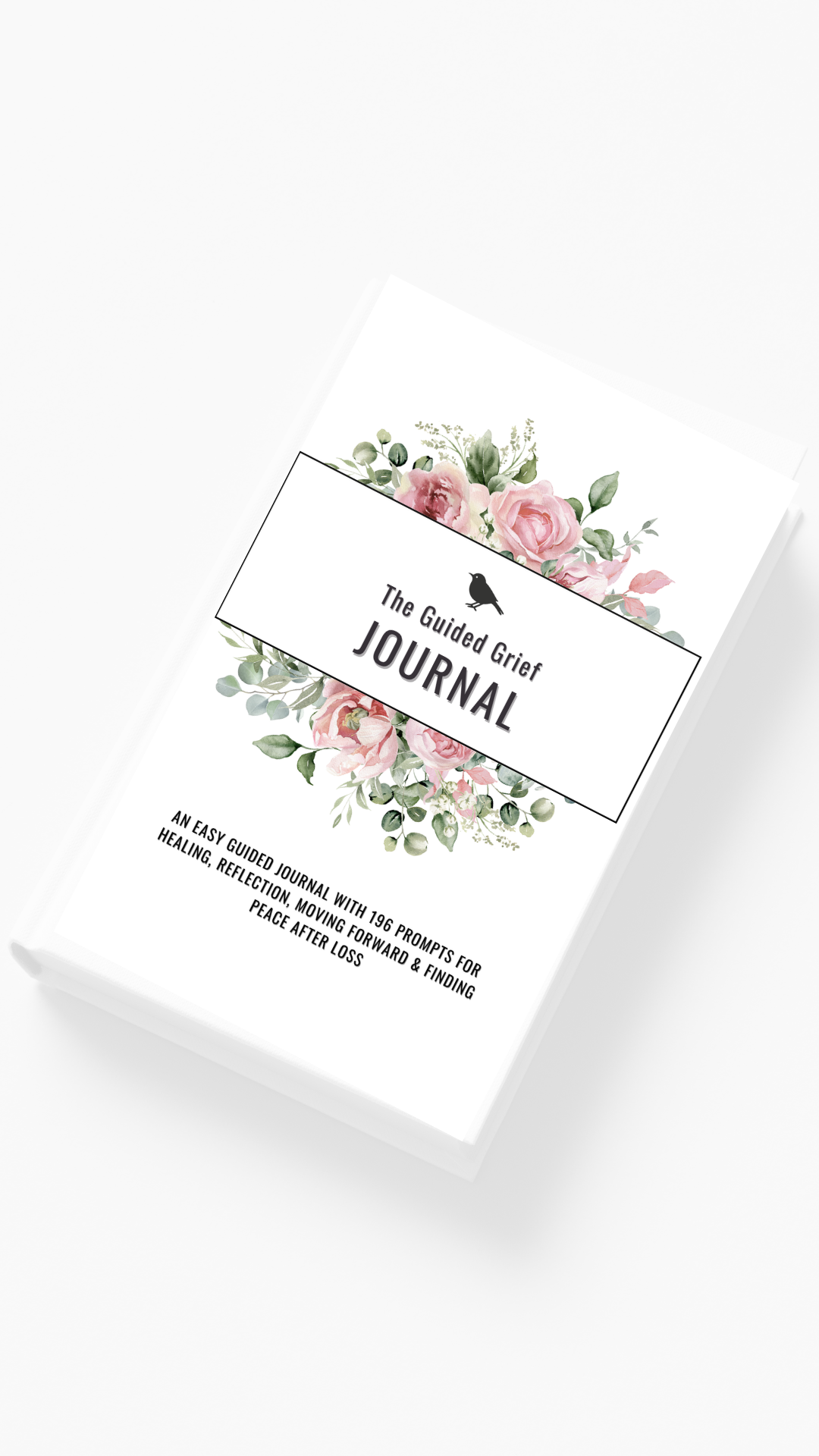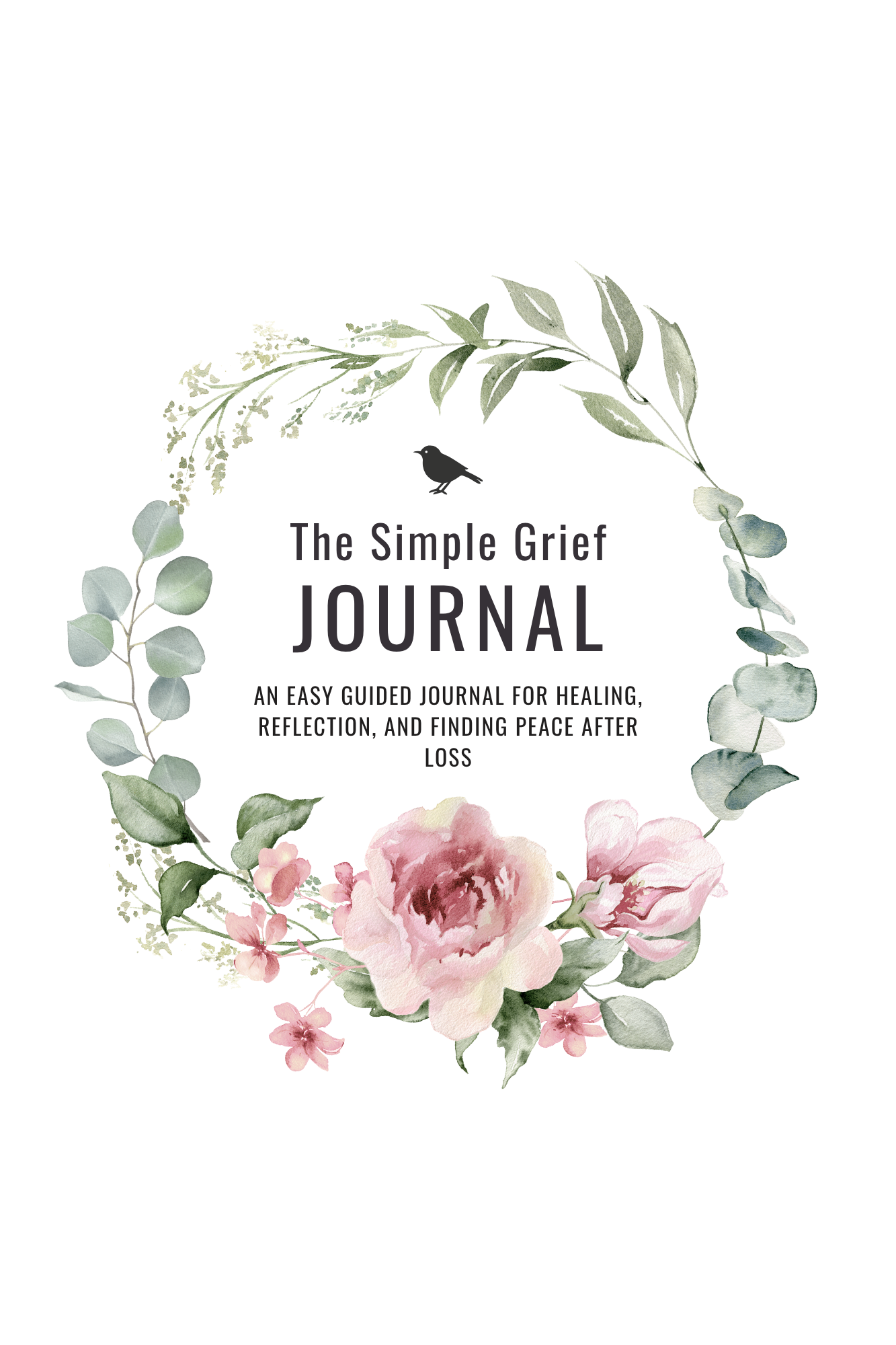- Home
- books for bereavement
- journal prompts for grief
Journal Prompts for Grief

Journal prompts for grief can offer a gentle way to begin when you’re unsure what to write or how to start.
Perhaps you've bought yourself a plain journal but found it too blank, too quiet, too overwhelming.
You want to begin a self-care practice or a way to process your loss, but the right words feel far away and a mile out of your comfort zone.
When grief arrives, words often leave us.
Journaling can help bring them back to us, not all at once, but slowly, quietly, in your own time.
You don’t need to write every day, or perfectly, or even in full sentences.
There is no right way to do this, only your way and it will be enough.
What matters is that you give yourself a bit of private space to feel.
This little collection of prompts isn’t meant to fix your grief, but to help you process what you are thinking and feeling.
Think of it as a bit of a companion, something to guide you gently, not away from your grief, but through it.
These structured headers and questions are here to help you find a rhythm, a place to start, and permission to begin, so I hope you can begin...
Honouring their memory
Sometimes the clearest way through sorrow is to remember the love and happiness involved.
These prompts are meant to bring forward memory, not to dwell in pain, but to reconnect with warmth.
- What is one of your happiest memories with them?
- How did they make you feel when you were around them?
- What is something they used to say that still makes you smile?
- Describe a small, ordinary moment that meant a lot at the time.
- What do you miss most about their presence?
These memories matter.
You’re not trying to hold onto the past you’re acknowledging that love doesn’t just vanish with a loss.
Naming the emotions
Grief carries so many emotions, some expected, others confusing or even conflicting. Writing them down can help untangle the knots and honour all you’re feeling.
- What emotions are you feeling most strongly today?
- Are there any emotions you feel you're "not allowed" to have?
- Where in your body do you feel your grief?
- What would it be like to give your grief a shape, colour, or texture?
- What do you wish others understood about your grief?
There’s no “wrong” emotion in grief.
Anger, guilt, numbness, love, fear, joy and peace, all deserve space because you will cycle through them all at some point or other, and often many times
Life without them
When someone we love dies, the world doesn’t just lose a person. We lose routines, rituals, and roles we didn’t know were so deeply tied to them.
These prompts help you explore the shape of your life now.
- What part of your daily routine feels most different since your loss?
- What have you stopped doing, and why?
- What do you wish you could ask them today?
- What brings you comfort when you’re having a hard day?
- What does “moving forward” mean to you right now?
You don’t have to have the answers.
Even asking the question is a powerful act of progress
Gratitude & legacy
This section helps you reflect not on the pain of loss, but the depth of love, and the lasting impression they left on you.
- What did they teach you that you want to carry forward?
- How did they inspire you?
- What personal qualities of theirs do you admire most?
- How might you honour their memory in your daily life?
- What would you like future generations to know about them?
Gratitude and grief can live side by side. One doesn’t cancel out the other.
Self compassion in grief
Grief isn’t just about the person who’s gone, it’s also about how you treat yourself in the aftermath. These prompts turn the kindness inward and towards you.
You must not forget about your wellbeing and be proud of each day you move forward and put one foot in front of the other.
- What do you need most right now?
- What’s something kind you can do for yourself this week?
- How have you shown strength during this time?
- What small moment of peace or beauty did you experience recently?
- What would you say to yourself as if you were a dear friend?
You are still here. You are allowed to rest. You are worthy of care. Take some time for you.
How to use these journal prompts for grief
- Choose one prompt at a time and there is no right or wrong order.
- Write for five minutes or as long as you need.
- Stop when you feel overwhelmed. Return when you're ready.
- You can revisit prompts more than once and your answers may change.
- You can use this journal alongside therapy, rituals, or quiet moments of reflection.
Tips for journaling
- Light a candle or play calming music before you begin.
- Sit in a space that feels safe, whether it’s at home, outside, or somewhere sacred.
- Hand write if you can, it helps slow your thoughts and deepen your connection.
- Don’t edit. don’t judge, don’t try to “sound” wise or well. Let it be raw and let it be you.
- Even if you only write one sentence today, you are honouring your grief.
- You are doing enough!
Free download
If you found this page helpful, you may also appreciate my free PDF download, which includes all the prompts featured here, plus an additional 25 thoughtfully curated journal prompts for grief.
Organised under clear themes, this resource is designed to gently guide you through memories, emotions, and the personal journey of healing.
Whether you’re new to journaling, looking for a structured starting point, or hoping to share something meaningful with a friend, this downloadable guide offers a quiet space to reflect, remember, and feel supported, one prompt at a time.
The Simple Grief Journal

If you’re new to bereavement, you may also be new to journaling, and finding a place to begin can feel overwhelming.
I created The Simple Grief Journal for myself initially as a gentle, guided writing companion with some basic journal prompts for grief to support me through the earliest and hardest days of the loss of my mum.
I have never written a journal before.
And, it helped me a lot, so I thought it might help you!
While nothing can take away the pain of grief, sometimes putting pen to paper, just a few words at a time can help you begin to piece together what’s been broken.
And remember, you are moving forward, even if it doesn’t feel like it.


